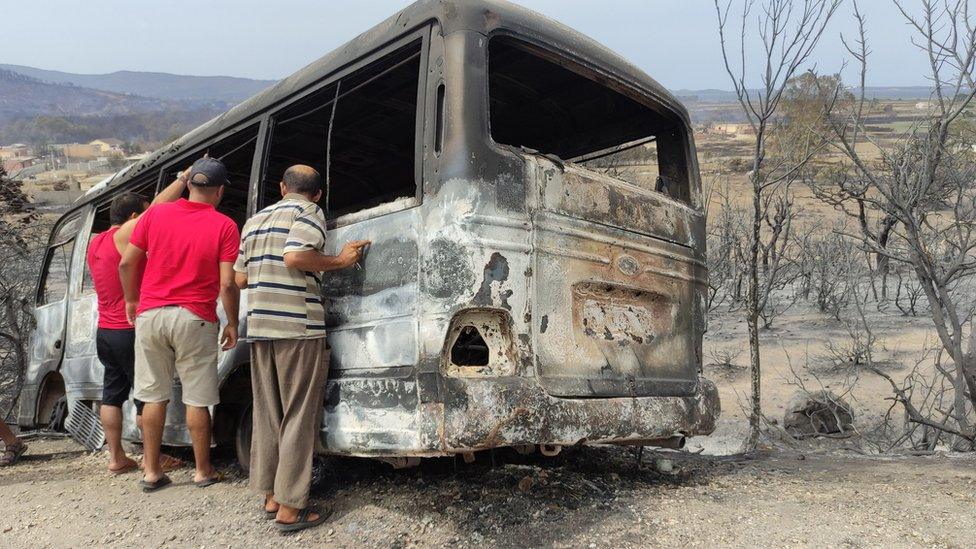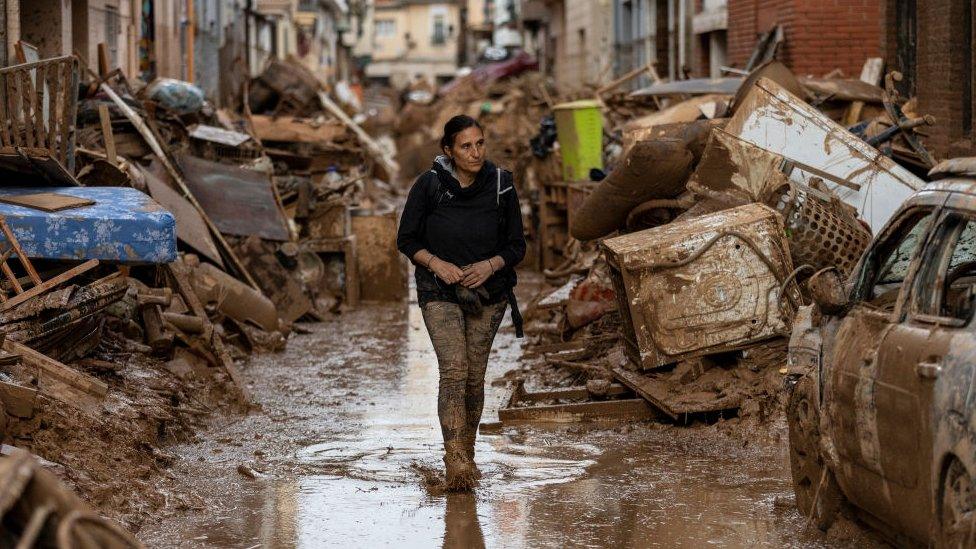Europe storms: Children among dead in France, Austria and Italy
- Published
Watch: Europe battered by severe weather
Powerful storms have battered areas of central and southern Europe, killing at least 12 people including three children.
The deaths, most from falling trees, were reported in Italy and Austria, and on the French island of Corsica.
Heavy rain and winds wrecked campsites on the island, while in Venice, Italy, masonry was blown off the belltower of St Mark's Basilica.
The storms follow weeks of heatwave and drought across much of the continent.
In Corsica, winds gusting up to 224 km/h (140mph) uprooted trees and damaged mobile homes.
Authorities there said a 13-year-old girl was killed by a falling tree on a campsite.
A 46-year-old man died in a similar incident and a woman in her 70s was killed when her car was hit by the detached roof of a beach hut.
Two other people, a fisherman, 62, and a female kayaker, 60, died out at sea.
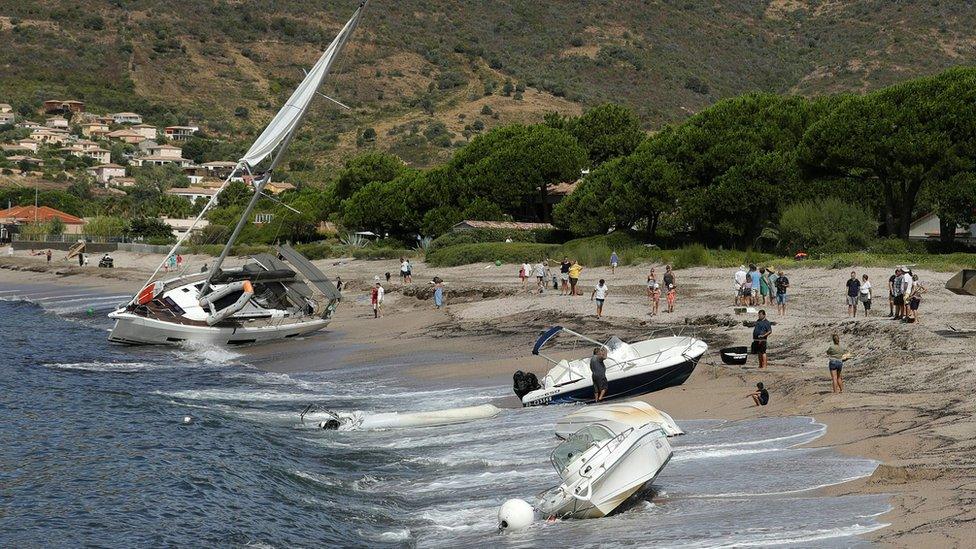
Boats were thrown onto the beach of Sagone in Coggia, Corsica
Interior Minister Gérald Darmanin, who arrived in Corsica on Thursday, said 20 people had been injured - four of them seriously.
Almost 13,000 people were evacuated from several campsites on Thursday evening and sheltered in public buildings, ahead of more expected damage. But authorities said on Friday morning that the night had passed without any major incidents.
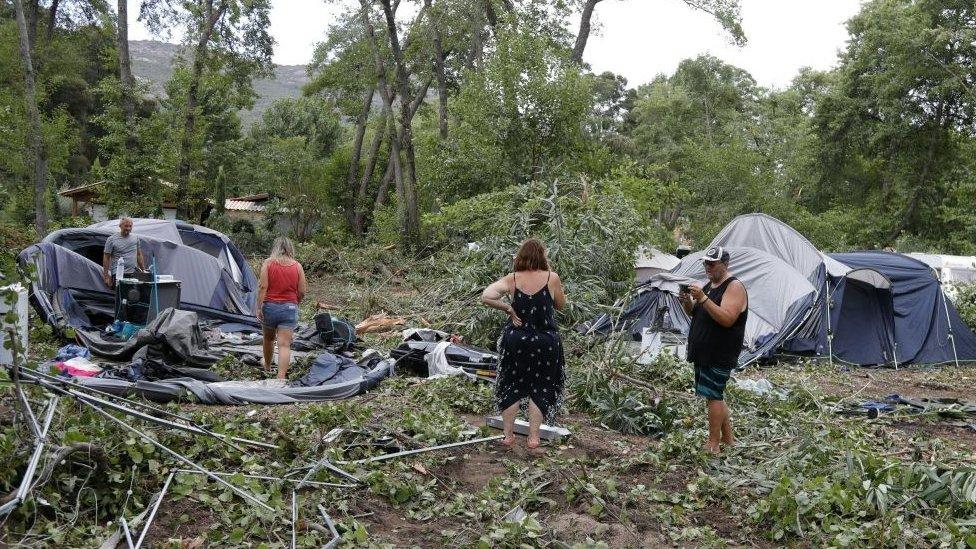
Holidaymakers pack what is left of their destroyed tents and other items at the Sagone camping site in Corsica
Extreme storms have become more frequent recently because of climate change.
Witnesses to the storms said they had been completely unexpected and no warning was given.
"We have never seen such huge storms as this, you would think it was a tropical storm," restaurant owner Cedric Boell told Reuters news agency.
On the French mainland, some southern areas were hit by power cuts and streets were flooded in the country's second city, Marseille.
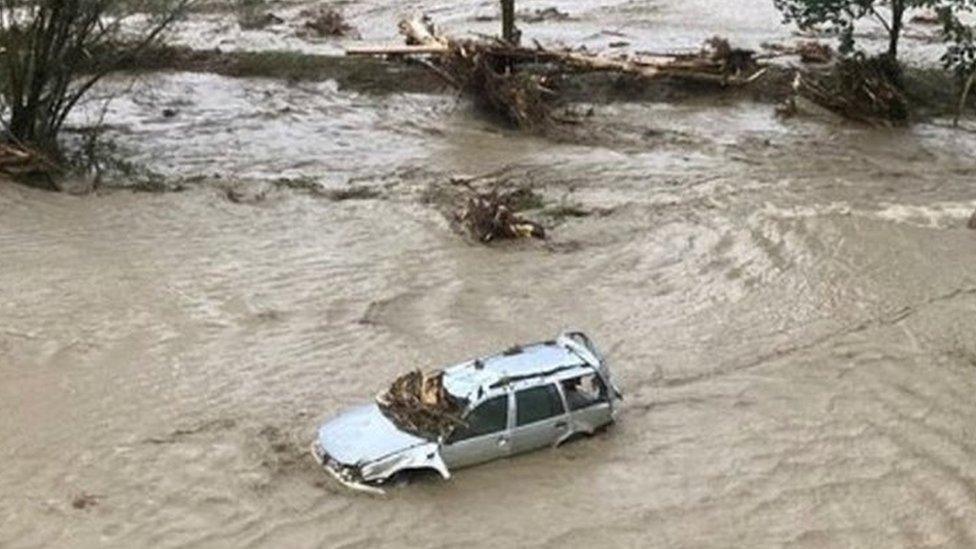
Heavy rain and mudslides have devastated parts of Carinthia, Austria
In Austria two girls aged four and eight were killed by a falling tree near a lake in Carinthia.
Later, three women were reported to have died in Lower Austria province, also as a result of a falling tree.
Officials said 13 people had been injured, including five children.
Hannes Primus, mayor of the Wolfsberg district where the two girls were killed, said the area has been left looking "like a battlefield".
Meanwhile in Italy, a man and a woman were killed by falling trees in separate incidents in the region of Tuscany.
High winds swept through Venice, blowing café umbrellas across St Mark's Square and dislodging brickwork from the cathedral belltower.
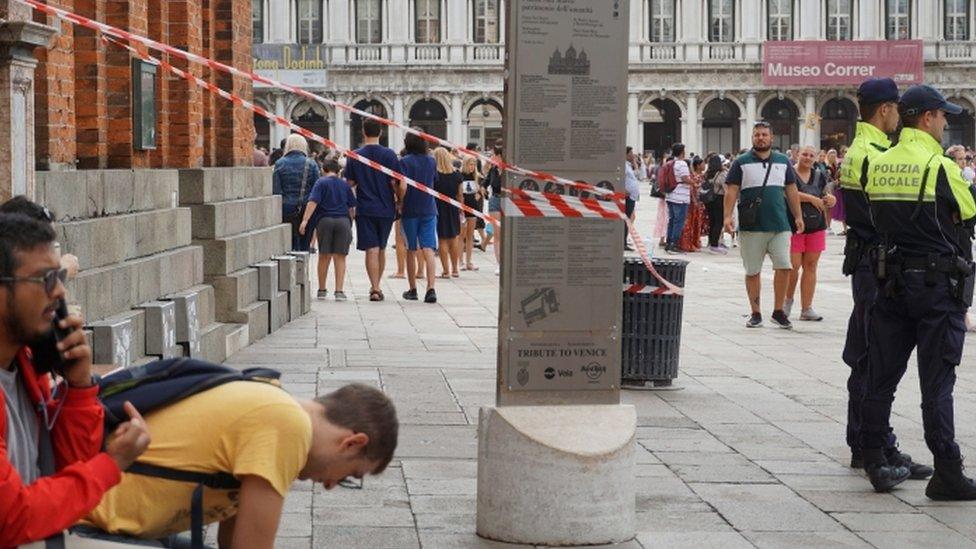
Parts of Venice's St Mark's Square were cordoned off after the storm
Seaside resorts in Tuscany and further north in Liguria were damaged by the storms.
Tuscan regional leader Eugenio Giani posted a video of a ferris wheel spinning out of control in high winds at Piombino.
Allow X content?
This article contains content provided by X. We ask for your permission before anything is loaded, as they may be using cookies and other technologies. You may want to read X’s cookie policy, external and privacy policy, external before accepting. To view this content choose ‘accept and continue’.

But in southern Italy, the heatwave continued, with temperatures of up to 40C recorded in Sicily.
And across the Mediterranean Sea in Algeria, at least 38 people have died in forest fires.
Many parts of Europe have seen weeks of exceptionally hot and dry weather.
Extreme weather events, including both heatwaves and storms, have become more intense and more frequent in recent years because of human-induced climate change.
The world has already warmed by about 1.1C since the industrial era began and temperatures will keep rising unless governments around the world make steep cuts to emissions.
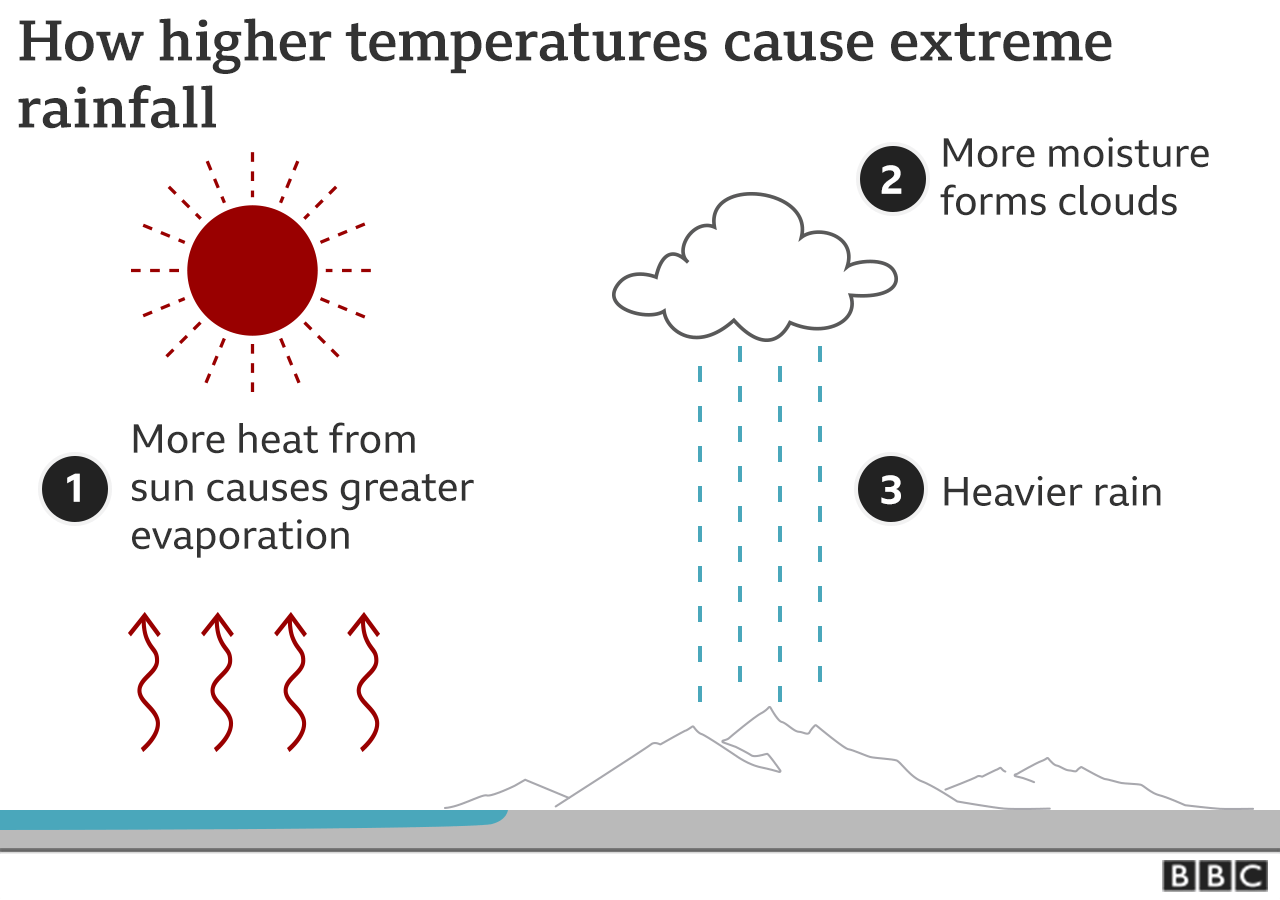
Related topics
- Published18 July 2022
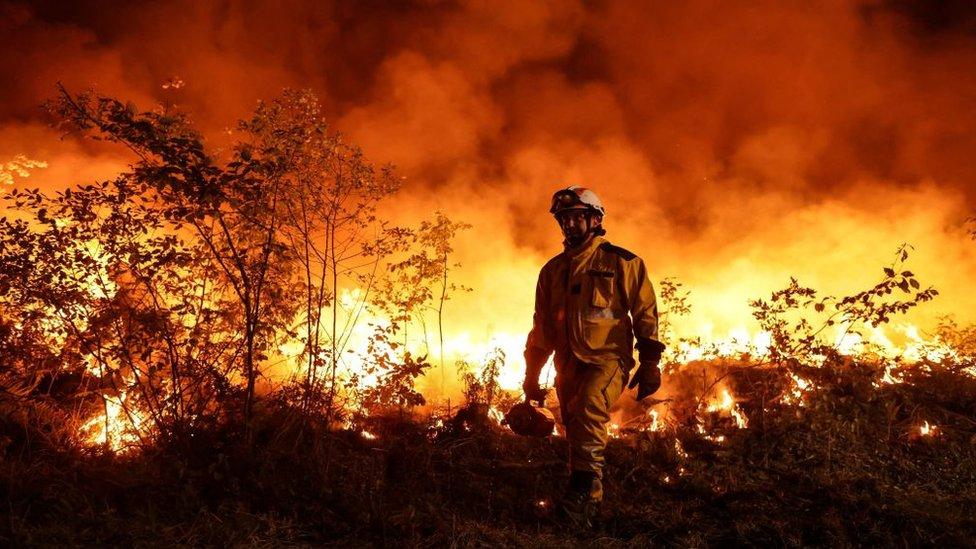
- Published15 July 2022
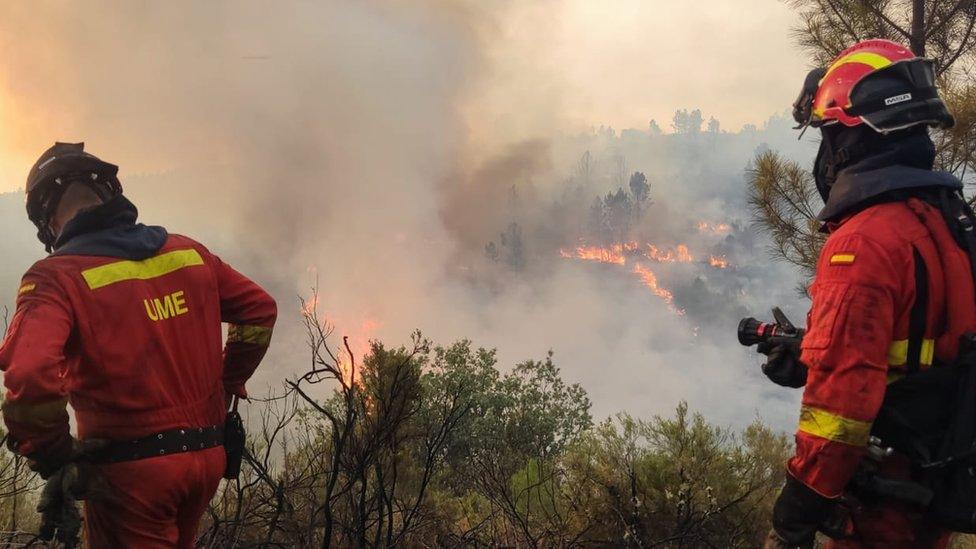
- Published18 August 2022
